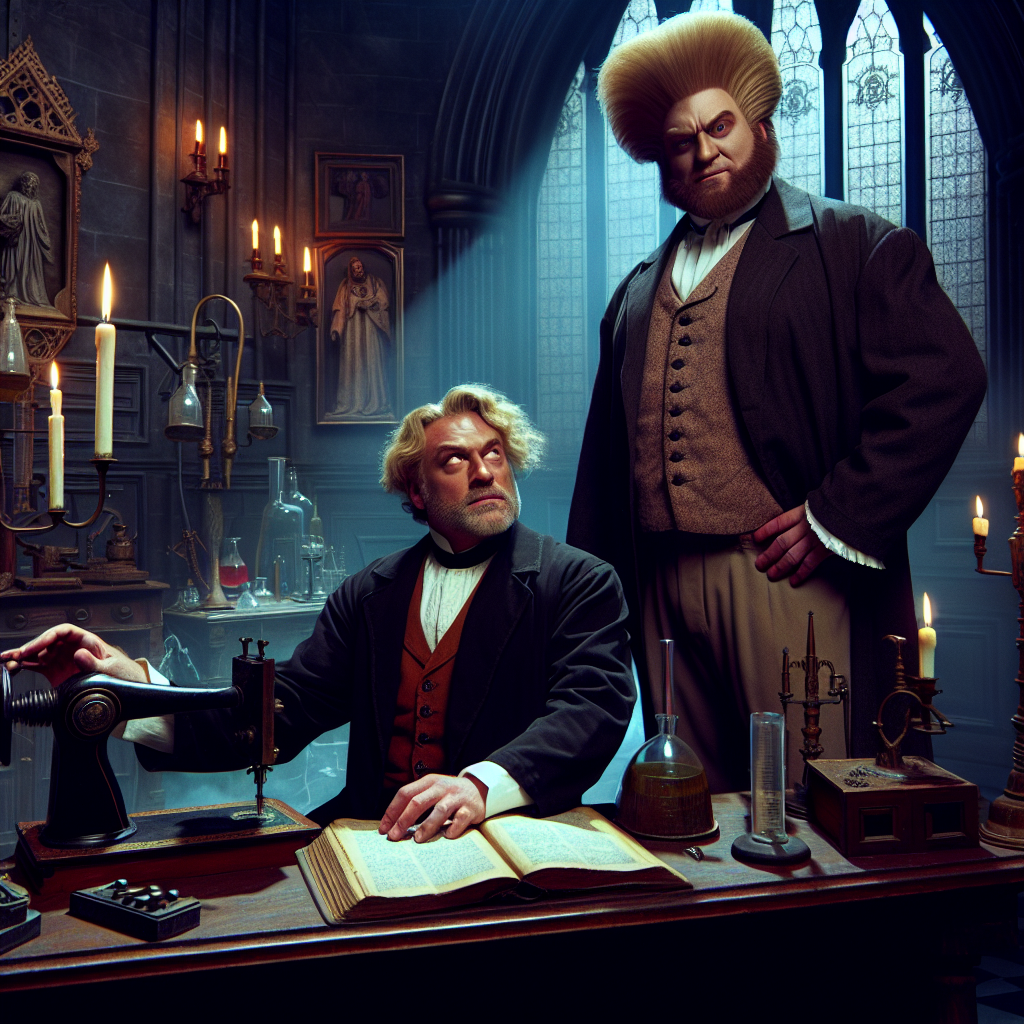Introduction: Stitching Together Frankenstein and Faith
At first glance, the raucous humor and zany antics of Mel Brooks’ Young Frankenstein (1974) might seem worlds away from spiritual teachings and biblical principles. However, upon closer inspection, we can unearth profound lessons nestled within this classic parody. From the complexities of creation to the responsibilities that come with power, Young Frankenstein offers more than just laughs; it provides valuable insights into faith, redemption, and the human condition.
Creation and Responsibility: A Biblical Perspective
In Young Frankenstein, we witness a man’s quest to reanimate the dead, a mission fraught with moral and ethical questions. This ambitious journey mirrors the biblical act of creation, reminding us of God’s initial command to humanity in Genesis 1:28, where He encourages us to “be fruitful and multiply, and fill the earth and subdue it.” However, with great power comes great responsibility, a theme both the Bible and Young Frankenstein heavily emphasize.
- Dr. Frankenstein’s creation, though impressive, brings forth unanticipated consequences.
- Similarly, our actions, especially when playing God, can have far-reaching impacts.
The Power of Redemption and Grace
The journey of the Frankenstein Monster, from being vilified to showing moments of tenderness and understanding, mirrors the biblical narrative of redemption. As seen in Ephesians 2:8-9, “For it is by grace you have been saved, through faith—and this is not from yourselves, it is the gift of God—not by works, so that no one can boast.” The transformation of the Monster showcases the power of grace and the possibility of redemption for all, regardless of past transgressions.
Embracing Our Imperfections
One of the most poignant lessons from Young Frankenstein is the acceptance of our flaws and imperfections as part of our humanity. The Monster, with all his quirks and peculiarities, seeks love and acceptance, a universal desire that echoes the biblical teaching found in Romans 15:7, “Accept one another, then, just as Christ accepted you, in order to bring praise to God.” This message encourages us to embrace our imperfections and those of others with grace and compassion.
Conclusion: Finding Divine Wisdom in Unlikely Places
Young Frankenstein may be a tale of science gone awry, but it is also a story rich with lessons about creation, responsibility, redemption, and the beauty of our imperfections. These themes resonate deeply with biblical principles, offering us a unique lens through which to view our own faith journeys. By looking beyond the surface, we can find divine wisdom and spiritual insights in the most unexpected of places.
Let us take to heart the lessons learned from the lab of Dr. Frankenstein, applying them to our lives with a spirit of reflection and curiosity. How can you embrace your imperfections as a testament to God’s grace? In what ways can you exercise responsibility and wisdom in your creative endeavors? Reflect on these questions and seek to find the extraordinary in the ordinary, the sacred in the secular.
Engage with the text, ponder the parallels, and let the story of Young Frankenstein inspire your spiritual journey. Remember—faith, like science, is an exploration of the wondrous and the unknown.
If you want to see how ANY movie relates to Biblical principles, please try our Movies and Scripture GPT. Simply key in any movie and let it show you insights you might not have realized otherwise!


